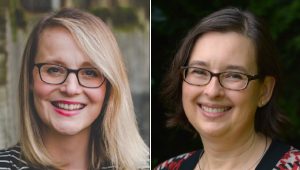Deprescribing: Less may be more

Dr. Sascha Dublin explains why sometimes not taking medications may be a safer and healthier choice
By Sascha Dublin, MD, PhD, Kaiser Permanente Washington Health Research Institute senior investigator and Washington Permanente Medical Group internal medicine physician
Recently, The New York Times posted a story about a common danger for older adults — taking more medications than necessary. I read the story with interest because I help lead an initiative it describes: the U.S. Deprescribing Research Network. Our goal is improving medication use and outcomes for older adults.
No matter one’s age, taking unnecessary medications is dangerous because it increases the risk of drug-drug interactions and side effects. However, there are additional risks as we get older, and as our bodies change. Our kidneys slow down and medications may build up in the body. Medications prescribed and taken in the past without problems may become harmful and increase risk of cognitive impairment, injury from falls, and other conditions that restrict independence or threaten good health. But we have a way to reduce these risks: deprescribing unneeded medications.
How to deprescribe
The New York Times tells the story of one woman — Ms. Harrison — but I recognize her experience from treating older adults. Ms. Harrison was taking 14 prescription medications when she was 93 and declining physically and mentally. Her daughter noticed and worked with a geriatrician to reduce Ms. Harrison's prescriptions, eliminating those that were no longer needed or actually harmful. Now with 4 medications, Ms. Harrison is more active and scores higher on a cognitive test.
Here's an example from my own work as a doctor: One woman I clearly remember came to see me because of memory and thinking problems and repeated falls. A cognitive evaluation had found that she had “severe impairment” in several areas. She was taking 11 medications (counting over-the-counter vitamins and supplements) including pain medications and antidepressants.
This patient and I worked together to taper her use. She ultimately stopped taking 5 of her 7 prescription drugs. She reported feeling much better and mentally more clear, and she stopped having falls. She even came to clinic visits carrying a big bag full of all the medications she had stopped, proudly showing it to clinic staff.
Ms. Harrison and my patient improved. They were part of the one-third of older adults who take 5 or more medications. And unnecessary medication use does not happen only to older people. When doctors review any patient's list of prescriptions, they often find they can eliminate some. Fortunately, we know that most people are willing to stop taking some medications if advised by their doctor.
Some medications people take that they may not need are those used for heartburn (such as ranitidine or omeprazole). Symptoms from this condition can wax and wane. People who need medications at one point may end up on them long term and not know they can try stopping to see if they are still needed. Medications for bladder problems are especially problematic. People who take them often don't benefit much while at the same time they increase their risk of falls, confusion, pneumonia, and even dementia.
Some people who take medications for diabetes find that, as they age, they need less medication to control their blood sugar. They may believe their increasingly lower blood sugar results are a good thing, but actually they might not be — and could be harmful to their brain health. They should talk with their doctor about whether they can reduce the number or strength of their diabetes drugs.
Research leads our progress
Because use of unneeded medications is so common and can be harmful, KPWHRI has made deprescribing a major part of our research. Here are some examples:
- In the U.S. Deprescribing Research Network, we support scientists working with patients, their caregivers, and clinical experts on developing ways to study and enact safe, effective processes for deprescribing medications.
- The SMARRT study led by Eric Larson at KPWHRI and Kristine Yaffe of the University of California San Francisco seeks to reduce dementia risk in high-risk older adults, in part by helping them decrease or stop using medications that can harm cognition.
- STOP FALLS is a collaboration of KPWHRI and the University of Washington funded by the CDC (Centers for Disease Control and Prevention). The project is led by Elizabeth Phelan, MD, MS, and Shelly Gray, PharmD, MS, who are KPWHRI affiliate researchers, and KPWHRI Research Associate Ben Balderson, PhD. STOP FALLS reaches out to patients and physicians to encourage deprescribing risky medications including benzodiazepines and opioids.
- The SUAY study led by KPWHRI Senior Investigator Rob Penfold, PhD focuses on reducing inappropriate antipsychotic medications prescribed to youth.
Resources
If you take a lot of medications and are interested in taking fewer or care for someone in this situation, it’s always a good idea to talk with your doctor. Make sure your doctor knows your personal health goals. Review your prescription list with a physician or pharmacist and ask if there are any you might not need.
If you or your physician would like more information on deprescribing, this tip sheet is a good place to start. The U.S. Deprescribing Research Network and the Canadian Deprescribing Network also have helpful resources.
Read the New York Times story (subscription might be required).
Video

Ensuring safe medications for older adults & pregnant women
In this short video, Dr. Sascha Dublin tells why KP is an ideal place to pursue her passion: Research to help vulnerable patients get the right drug treatment.
Behind the scenes

Meeting participants' needs: Our research interventionists
Deborah King and Jessie Waiamau-Ariota describe their pivotal role in research on youth mental health — and more.


